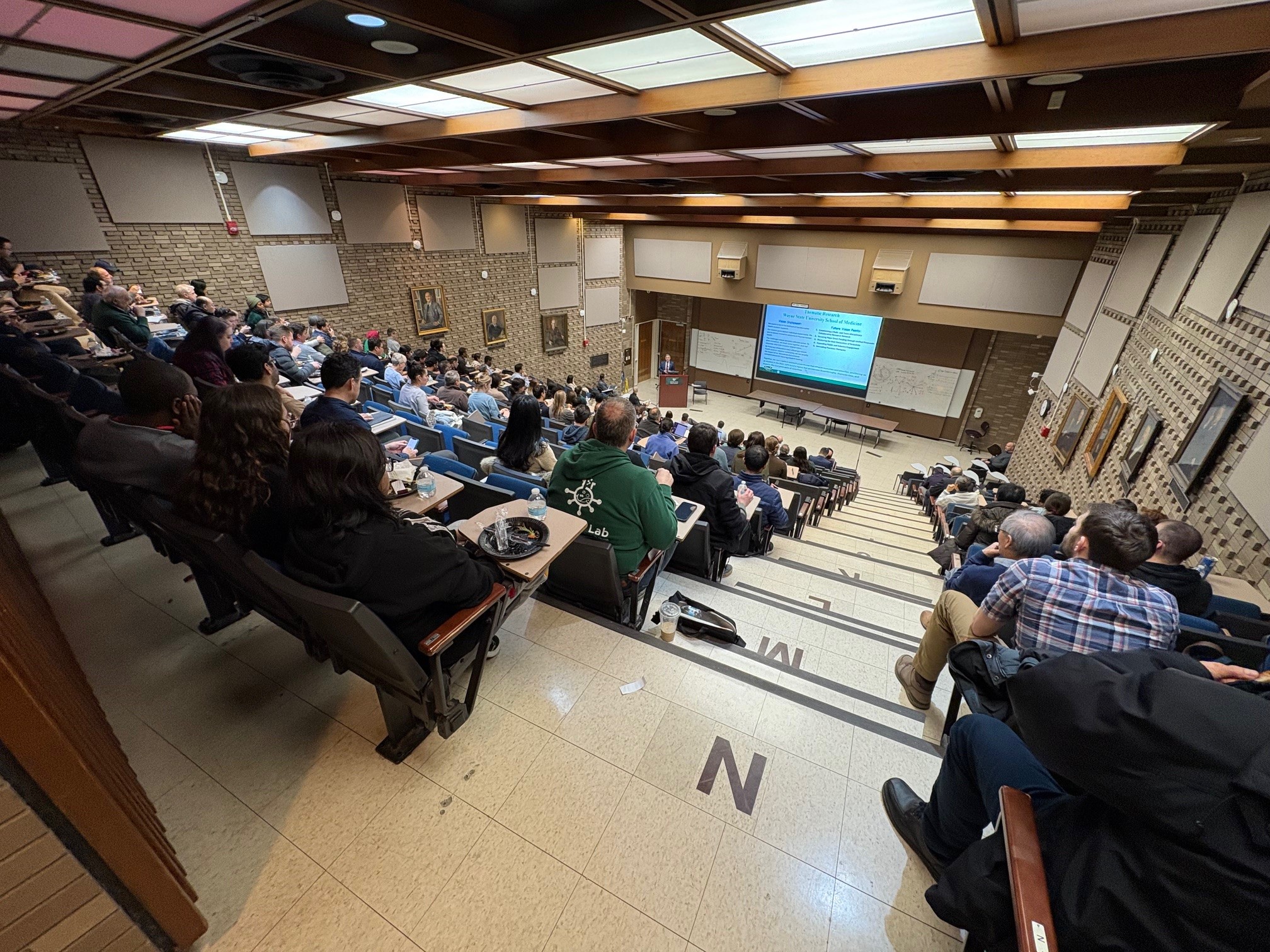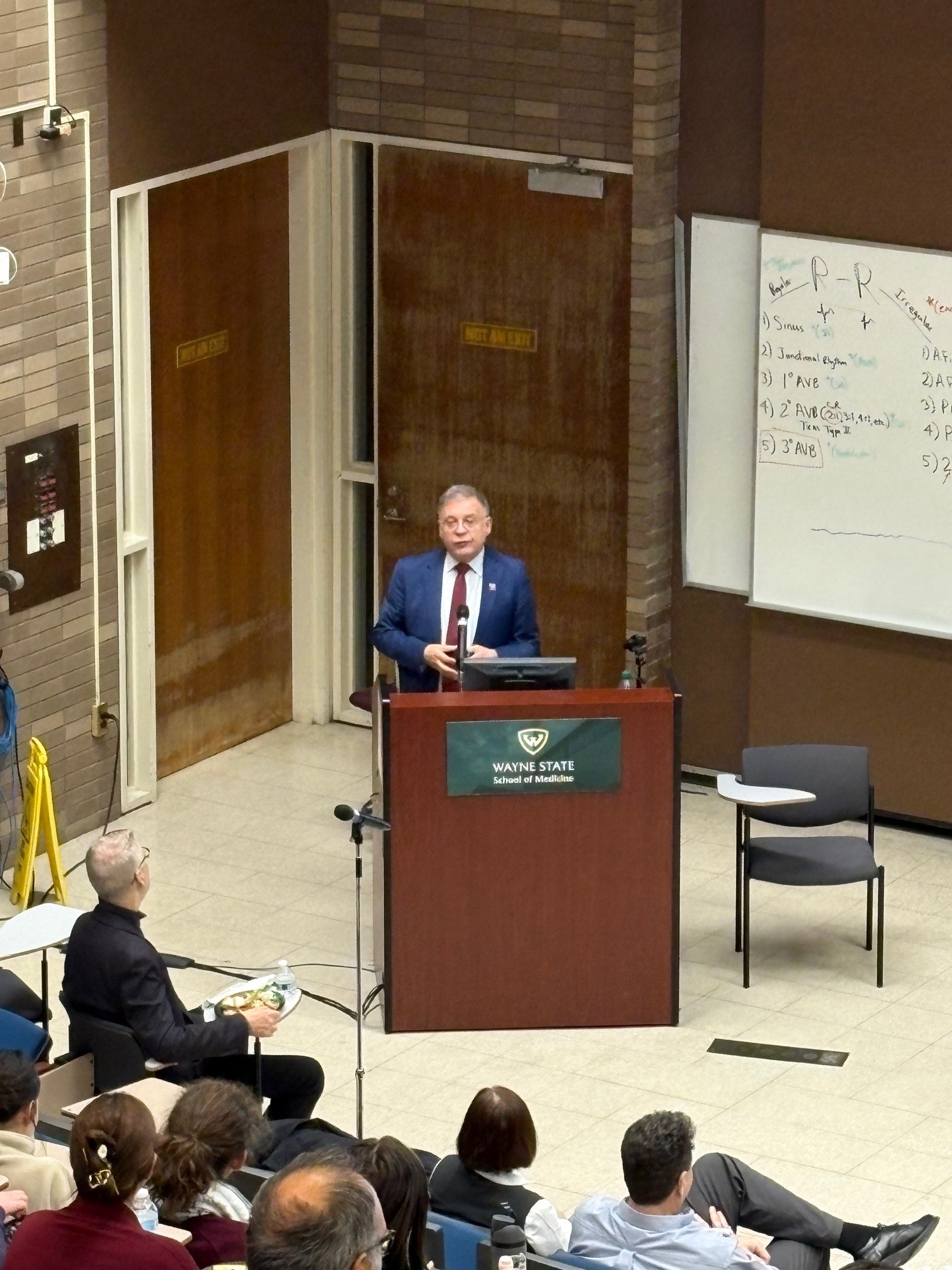More than 200 faculty, students, postdoctoral fellows, staff and trainees of the Wayne State University School of Medicine packed the Scott Hall’s Blue Lecture Hall from noon to 2 p.m. Dec. 11 for a mini symposium featuring five research presentations on two themes: metabolism and systems biology, and neurosciences.

The event was moderated by Professor of Ophthalmology, Visual and Anatomical Sciences Tomomi Ichinose, M.D., Ph.D., and Professor of Molecular Medicine and Genetics Maik Huettemann, Ph.D.
The inaugural event was part of a new thematic research series launched by School of Medicine Dean Wael Sakr, M.D.
“The event involved the entire medical school and not a single department. We started with the basic science departments, but the plan is to get the clinical faculty to join our efforts,” Dr. Huettemann said. “The idea is to further expand this. Bringing basic sciences faculty and clinical faculty together is also a major strength when it comes to grant proposals and transformative translational research.”
The event featured a presentation by Associate Professor of Pharmaceutical Sciences Paul Stemmer, Ph.D., who directs of the Proteomics Core Facility in the Eugene Applebaum College of Pharmacy and Health Sciences Institute of Environmental Health Sciences. He gave an overview of the services from the Proteomics Core Facility available to WSU scientists.
Following the presentations by speakers Ryan Insolera, Ph.D., assistant professor of Ophthalmology, Visual and Anatomical Sciences; Kezhong Zhang, Ph.D., professor of Molecular Medicine and Genetics; Eric Woodcock, Ph.D., assistant professor of Psychiatry and Behavioral Neurosciences; Dragana Komnenov, Ph.D., assistant professor of Physiology; and Dr. Ichinose, attendees had the opportunity for discussions with Dean Sakr, the speakers and all participants.

The next mini symposium, on the themes of cancer research and immunology/inflammation, is scheduled for March, with additional events planned for June, September and December.
Dr. Huettemann noted that the current four themes can be adapted, modified and expanded as they move on with the series.
“The goal is to foster new collaborations, which will lead to new grants and new medical breakthroughs,” Dr. Huettemann added. “In today’s scientific environment, it is impossible for a single faculty member to cover all of the needed aspects of a research project. Therefore, collaborations work in a synergistic way. As an example, of the current eight grants that I have, more than half are multi-principal investigator grants.”
Seed grants will be available for new collaborative pilot projects involving more than one faculty member. The money will allow the generation of preliminary data for grant applications. The first round of pilot grants will be announced around the time of the next mini symposium.
“The mini symposium was overwhelmingly positively received by the attendees. All people I spoke with told me that they really liked it,” Dr. Huettemann said. “Several people told me that they really enjoyed learning more about what our colleagues do, including what scientific methods they use. We asked the speakers to include a slide highlighting and summarizing their expertise/methods, so other faculty who are in need of such expertise can approach them to initiate a new collaboration.”